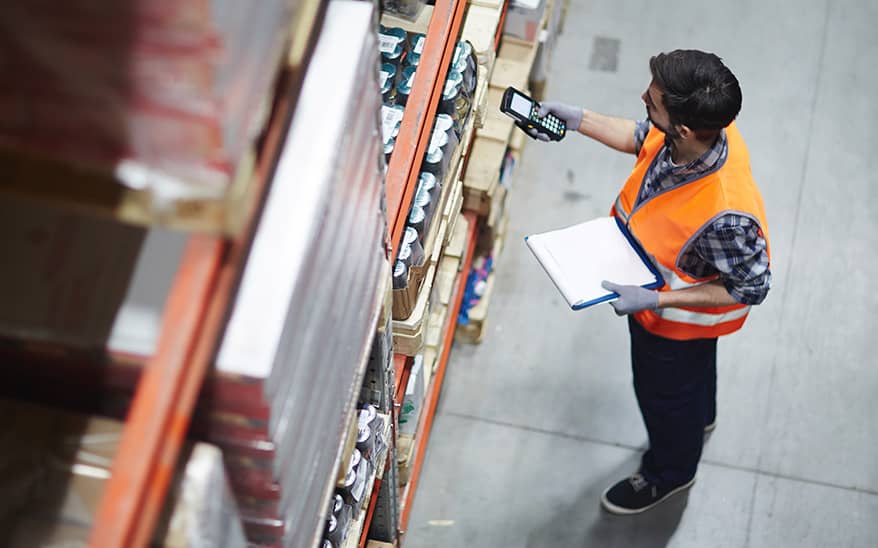Weathering The Storm: How Retailers Shifted To Ship-from-store In Record Time
- 10 September 2021
- By Manhattan Staff

Manhattan Associates cloud-native supply chain software helped major US retailers turn closed stores into mini fulfilment centres during lockdown.
When the US went into lockdown during the Covid pandemic, PVH Corp, which owns iconic brands like Tommy Hilfiger and Calvin Klein, realised much of its stock was trapped inside shuttered stores. At the same time, ecommerce demand for its casualwear lines began to surge as shoppers sought comfy clothes to wear while working from home. This left PVH scrambling to fill a rush of new online orders while also being unable to sell anything in-store – an unprecedented situation.
“If you were a traditional high street retailer with a high street presence and between 15% to 30% of your business online, the forced closure of your store network was not something you were ready for,” says Craig Summers, managing director for UK and Ireland at Manhattan Associates, which designs, builds and delivers supply chain software that unifies front-end sales and the back-end supply chain. “And in the case of most businesses, you could never have been ready for it because traditional infrastructures don’t allow you to be.”
Although few would have predicted nationwide store closures at the start of 2020, PVH’s longstanding partnership with Manhattan Associates meant it was quickly able to address the rapid growth in online orders and scale its fulfilment capabilities.
PVH pivoted quickly to configure business rules in Manhattan Distributed Order Management that exposed store inventory to online consumers, routing orders to optimal fulfilment locations, and turned closed stores into mini fulfilment centres for ecommerce orders. In-store staff were also trained on how to pick and pack these orders.
“The basic principle we try to work on with our customers is if you’ve got it, you should be able to sell it,” says Summers. “So really it shouldn’t matter where it sits within the supply chain.”
PVH also set up separate ecommerce fulfilment areas at two of its warehouses to bolster the efforts of its external fulfilment provider, with workers used to handling pallets shifting to picking individual items.
“Thanks to Manhattan Associates’ order management software, PVH was able to limit the volume of online orders flowing to the warehouses while staff got up to speed. And all of this was achieved in a matter of weeks.
The changes PVH needed to implement have given the company a better handle on where demand is and where consumers are shopping, and allowed it to be far more nimble in its approach to inventory. In fact, ship-from-store has proved so successful that it has now become part of PVH’s long-term strategy.
Pivoting at speed
PVH is just one of the countless companies that had to find new ways to deliver to customers after a surge in ecommerce sales and the closure of stores. Stay-at-home orders and social distancing measures closed all of US fashion accessories brand Kendra Scott’s stores, for example, and its main distribution centre in Austin, Texas was limited to minimum basic operations. Though some inventory was rerouted to a 3PL in another state, capacity was severely hampered.
Manhattan Associates was already a partner to Kendra Scott, helping the company keep up with growth through the Manhattan Order Management System. As the crisis deepened, the retailer reached out to the Manhattan team and got to work implementing Manhattan Store Order Fulfilment. After just six working days, Kendra Scott was able to start leveraging stores to fulfil ecommerce orders.
Resilience is being ready for the next unknown. You need to know that whatever system you’ve got today can flex quickly for what might come next
Pivoting at this kind of speed would have been impossible with a legacy system. “Even with all of the right intent and theory in place, the execution would have been really hard with an old school architecture,” says Summers. After the success of its ship-from-store efforts, Manhattan also helped Kendra Scott introduce curbside pickup capabilities.
Although businesses have talked about the need for this kind of supply chain agility and resilience for many years, before the pandemic most had only made incremental progress. Today, many have now seen first-hand that cloud-native solutions can provide a level of flexibility, agility and support that simply isn’t achievable otherwise. Take visibility: without it, you can’t make truly informed decisions during a crisis.
“If a retailer has a lot of stock in Aberdeen, it may not always be worth them making it available for sale in Southampton,” says Summers. “But that’s a decision you can make on an informed basis because you have the visibility and the information you need.”
Versionless visibility
Good, reliable data that spans all of your systems and is stored in one place is the foundation of this kind of visibility, and that’s only really achievable with a cloud-native solution. Why? Well, for one thing, the timescales involved in planning and putting in place a large on-premise system mean that “by the time they go live and have been in use for a couple of years, you could be seven years or more behind current thinking,” says Summers.
In other words, if your software isn’t cloud-native and versionless like Manhattan Associates, “you’re always going to be playing catch-up.” That may not be a serious problem in some business areas, he adds, “but the types of systems needed to keep the supply chain running means there is a never-ending requirement to be up-to-date.”
To be truly up-to-date and resilient, businesses also need to structure their operations around inbound and outbound flows rather than siloed warehouse and transport functions. Because in retail, there’s also a never-ending requirement to scale up and scale down your activities.
“Retailers have always had busy periods, peaks throughout the year, whether January sales or Black Friday,” says Summers. “All of their infrastructure has to be ready for the hour of that maximum demand. And yet the rest of the time, it isn’t really utilised. The elasticity of the cloud means when you need that capacity, it’s there. It allows you to meet demands as they come along.”
The right software can also help companies to protect their employees during a crisis. “People have to come first,” says Summers, emphasising that, without them, supply chains simply don’t work. “In a distribution centre, you want to make sure that the warehouse management system knows how to keep people apart safely. Because if social distancing measures are in place, you may need to quickly layout your distribution centre in a different way or change work schedules so that people aren’t concentrated in one place.”
Despite the challenges of the pandemic, Manhattan Associates delivered 591 customer projects in 2020 across the world, with the majority delivered remotely. Ultimately, says Summers, “resilience is being ready for the next unknown. You need to know that whatever system you’ve got today can flex quickly for what might come next.” And as PVH, Kendra Scott and other retailers have found, that’s exactly what Manhattan Associates helps its partners to achieve.
As featured in Raconteur Supply Chain Resilience 2021 report.




